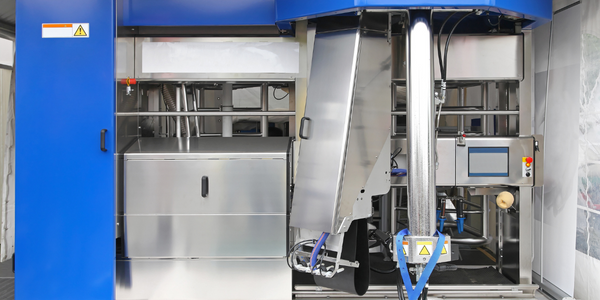How Medidata Accelerated the Time-to-Market of their BI Projects and Enabled their Clients to take Data-Driven Actions

Region
- Europe
Country
- Portugal
Product
- Dundas BI
Tech Stack
- Business Intelligence
- Data Analytics
- Data Visualization
Implementation Scale
- Enterprise-wide Deployment
Impact Metrics
- Productivity Improvements
- Digital Expertise
Technology Category
- Analytics & Modeling - Real Time Analytics
Applicable Functions
- Business Operation
Use Cases
- Process Control & Optimization
- Predictive Quality Analytics
Services
- Software Design & Engineering Services
About The Customer
Medidata is a Value-Added-Reseller (VAR) of Dundas Data Visualization that specializes in ERP software Development for local Portuguese Governments. Their primary objective is to modernize the technology and software programs used by Portuguese governments in order to combat the rapid evolution of the market. They are committed to continuous development by providing products and services (such as Support Systems, Back Office Applications, Document Repositories, etc.) that increasingly meet the needs of Portuguese municipalities and their residents. Medidata is dedicated to providing their customers with ERP software products and services that help boost self-government, improve document management, and enhance workflow.
The Challenge
Medidata, a Value-Added-Reseller (VAR) of Dundas Data Visualization, specializes in ERP software development for local Portuguese Governments. They were facing demands from their clients for software that allowed them to better analyze and interact with the valuable data produced from the ERP software they were using. Medidata felt it necessary to add a Business Intelligence (BI) and Analytics solution to their portfolio of software products. By providing a BI and analytics solution, Medidata’s clients would be able to make better and more informed decisions in order to improve their efficiencies and productivity, redefine their processes as necessary, and increase or decrease resources if needed. In addition to their external needs, Medidata wanted a BI and analytics solution that would detect issues regarding data quality within their own internally used software.
The Solution
Medidata has had a working partnership with Dundas Data Visualization since early 2009, when Dundas’ development core was Business Intelligence components. Their decision to migrate to Dundas BI was considered a ‘natural choice’ due to the current relationship in place, and their existing satisfaction with Dundas’ legacy products. Dundas got a better understanding of how Medidata planned to sell and market Dundas BI, and was able to put together an enablement program tailored specifically to Medidata’s needs. An onboarding process was created, which allowed Medidata the opportunity to test Dundas BI with full support, for an extended time period. Dundas also provided multimedia training content and webinars that simplified the learning curve, which resulted in an increase in adoption across Medidata’s organization.
Operational Impact
Quantitative Benefit

Case Study missing?
Start adding your own!
Register with your work email and create a new case study profile for your business.
Related Case Studies.

Case Study
System 800xA at Indian Cement Plants
Chettinad Cement recognized that further efficiencies could be achieved in its cement manufacturing process. It looked to investing in comprehensive operational and control technologies to manage and derive productivity and energy efficiency gains from the assets on Line 2, their second plant in India.

Case Study
Airbus Soars with Wearable Technology
Building an Airbus aircraft involves complex manufacturing processes consisting of thousands of moving parts. Speed and accuracy are critical to business and competitive advantage. Improvements in both would have high impact on Airbus’ bottom line. Airbus wanted to help operators reduce the complexity of assembling cabin seats and decrease the time required to complete this task.

Case Study
Improving Production Line Efficiency with Ethernet Micro RTU Controller
Moxa was asked to provide a connectivity solution for one of the world's leading cosmetics companies. This multinational corporation, with retail presence in 130 countries, 23 global braches, and over 66,000 employees, sought to improve the efficiency of their production process by migrating from manual monitoring to an automatic productivity monitoring system. The production line was being monitored by ABB Real-TPI, a factory information system that offers data collection and analysis to improve plant efficiency. Due to software limitations, the customer needed an OPC server and a corresponding I/O solution to collect data from additional sensor devices for the Real-TPI system. The goal is to enable the factory information system to more thoroughly collect data from every corner of the production line. This will improve its ability to measure Overall Equipment Effectiveness (OEE) and translate into increased production efficiencies. System Requirements • Instant status updates while still consuming minimal bandwidth to relieve strain on limited factory networks • Interoperable with ABB Real-TPI • Small form factor appropriate for deployment where space is scarce • Remote software management and configuration to simplify operations

Case Study
Developing Smart Tools for the Airbus Factory
Manufacturing and assembly of aircraft, which involves tens of thousands of steps that must be followed by the operators, and a single mistake in the process could cost hundreds of thousands of dollars to fix, makes the room for error very small.




